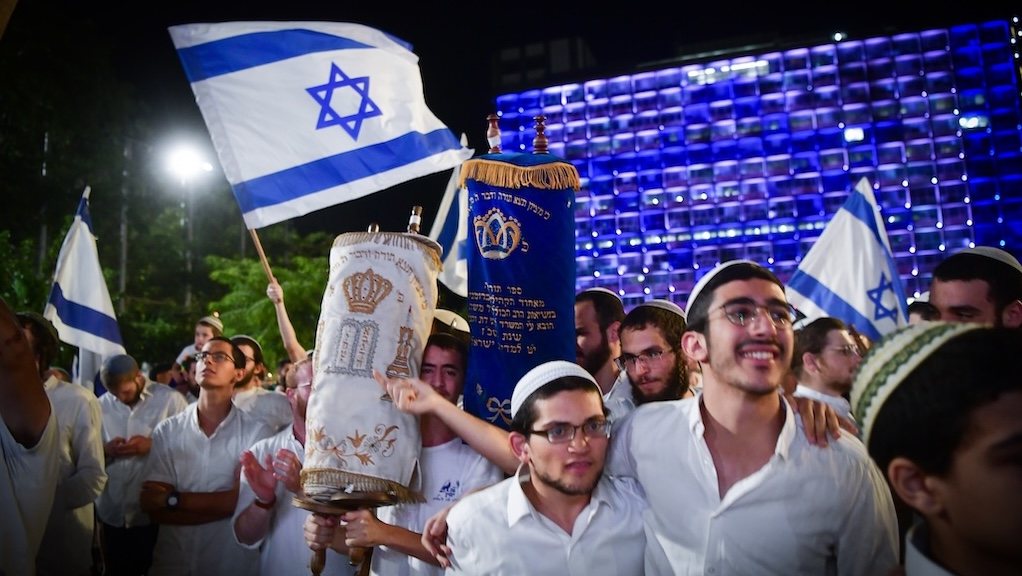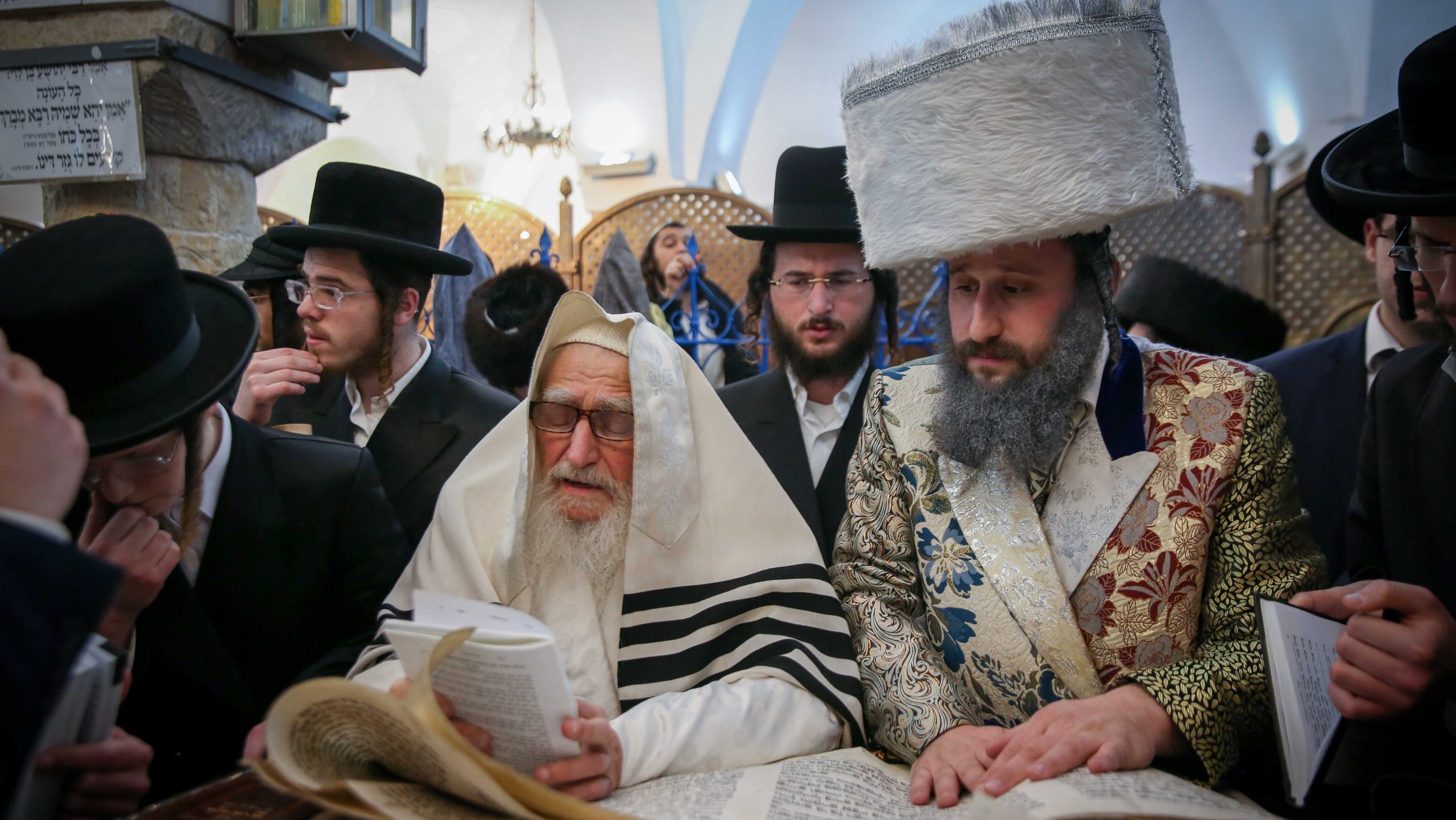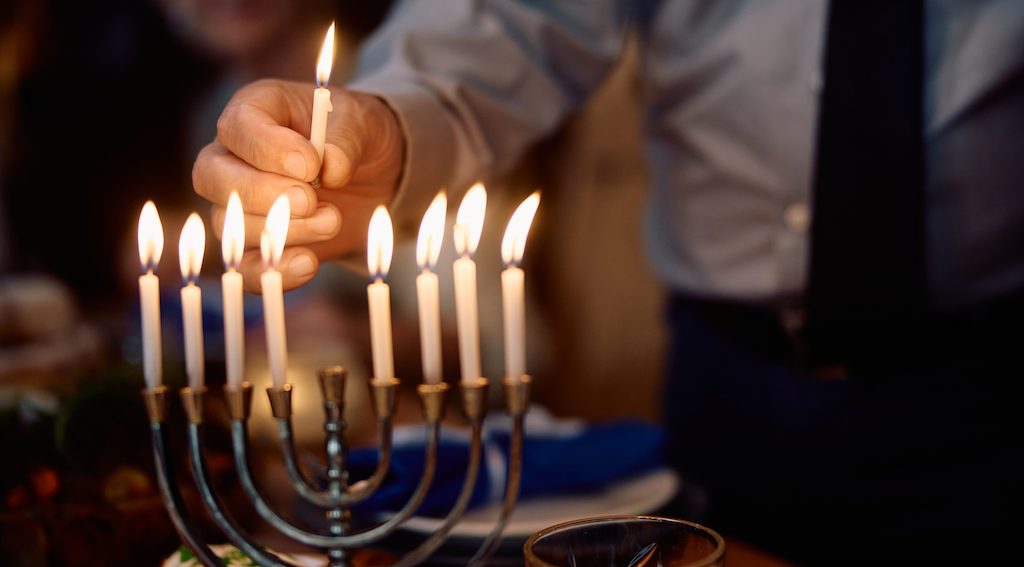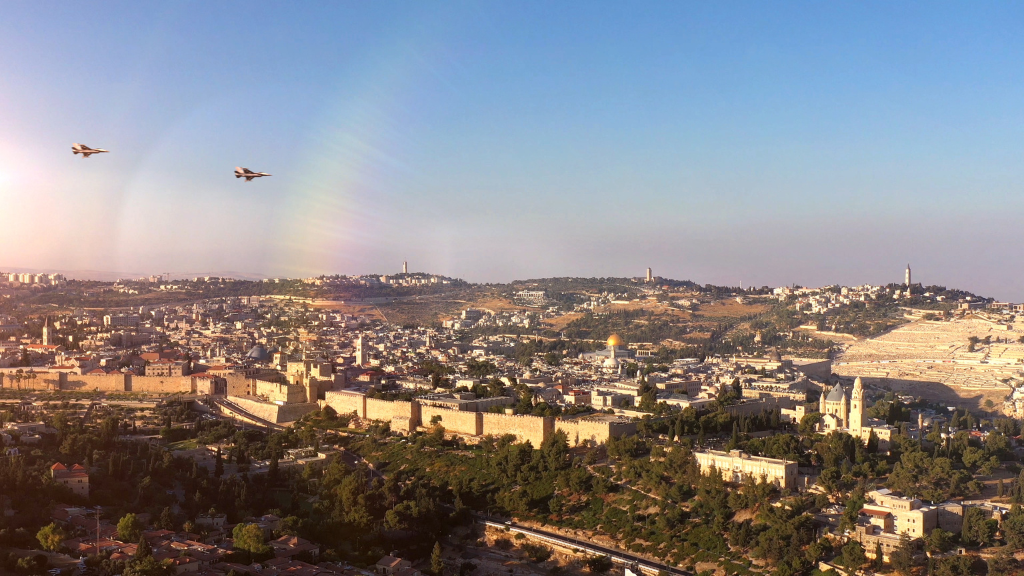Sukkot—Feast of Tabernacles
 Jewish men carry Torah scrolls as they dance during Simhat Torah celebrations at Rabin Square, Tel Aviv, on October 24, 2024 | Photo: Flash90
Jewish men carry Torah scrolls as they dance during Simhat Torah celebrations at Rabin Square, Tel Aviv, on October 24, 2024 | Photo: Flash90
From 7 to 13 October, Israel celebrates Sukkot, the Feast of Tabernacles. Like every Jewish festival, the Feast of Tabernacles begins on the evening (of the 6th). This is the Biblical order of creation: “And there was evening and there was morning, one day”. The day begins with the evening.
For eight days, the Jewish people lived in huts (sukkot), as a reminder of the exodus from Egypt and the journey through the desert. The roof of the hut (sukkah) is made of branches and it must not be completely closed. You must be able to see the sky through the branches.
Immediately after the Day of Atonement (2 October) is over, the father will start work on the sukkah. And the children help, of course. The walls of
the hut can be of any natural material, usually planks, but you can also use blankets, for example. The children decorate the hut with the symbols of the feast: the fruits of the season and the ‘four species’ and with all kinds of beautiful drawings.
Living eight days in the sukkah means to learn that we do not have a permanent city here. Living means eating, at least one meal a day, and preferably sleeping in the sukkah too. And then you return to your home. Yet through this experience, your home starts to feel like a sukkah as well. Israel confesses: we depend on God’s blessing in everything. A beautiful lesson for Christians, too!
Lulav
An important object at the Feast of Tabernacles is the lulav. This is a bundle of branches from a palm, a myrtle and a brook willow. In addition, it includes the etrog, a lemon-like fruit. These are the so-called ‘four species’ of the feast mentioned in Leviticus 23:40. The bundle of branches and the etrog are taken in the hand during prayers and moved back and forth in the four directions according to Biblical prescription. According to Jewish tradition, the four species symbolise four types of religion: the myrtle branch has smell but no taste. This is Torah knowledge not accompanied by corresponding good deeds—a faith without works. The palm branch has flavour, but no fragrance. These are good deeds, but without knowledge of God’s word. The brook willow has neither smell nor taste. It lacks both knowledge and right living. The etrog has smell and taste. This is how every Jew should be: with the smell of the knowledge of God’s commandment and the taste of living according to God’s will.
Waving palm branches should be familiar to us. John the evangelist tells us that at Jesus’ entry into Jerusalem, people picked palm branches and sang to Jesus: “Hosanna, blessed is He who comes in the name of the Lord”. And these are exactly the words (from Psalm 118) sung in the synagogue when moving the lulav! John connects Easter and Sukkot to designate Jesus as the Messiah.
Israel and the Nations
Especially at the Feast of Tabernacles, the significance of Israel to the nations of the world becomes clear. At the time of the Temple, a total of seventy bulls were sacrificed during Sukkot. According to Jewish tradition, this was done for the seventy nations of the earth, which there are according to Genesis.
In the synagogue service, the last chapter of the prophet Zechariah is read, Zechariah 14. There the prophet foretells (verse 16) that one day all nations will annually march to Jerusalem to celebrate the Feast of Tabernacles. Jerusalem will become the international centre of worship. For the nations will come there to “pray to the King, the Lord of hosts”. Earlier in the chapter, he mentioned that the Lord will be king over all the earth. “Then the Lord will be one and His Name will be one” (verse 9). All nations will recognise and call upon Him in unison.
Jesus also celebrated the Feast of Tabernacles (John 7). From the Feast of Tabernacles to Passover, the Jews pray for rain. The beginning of this prayer cycle was marked by a particular ceremony in the temple during the feast: water was drawn from the pond Siloam, brought to the temple in a lavish festive procession and poured there. At that moment, Jesus tells of the living water, the Holy Spirit.
Sukkot is a picture of the future: all nations together with Israel will bow down before the Lord. The Church that receives the Spirit of God serves as a vanguard of this. In Christ, we join Israel in praise to the one God (Romans 15:7-13).
Why Israel? by Rev. Willem Glashouwer
Order the book



